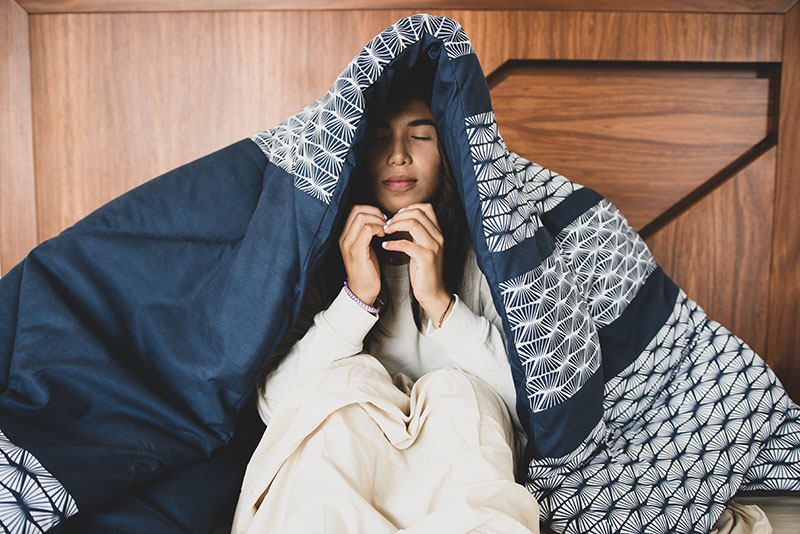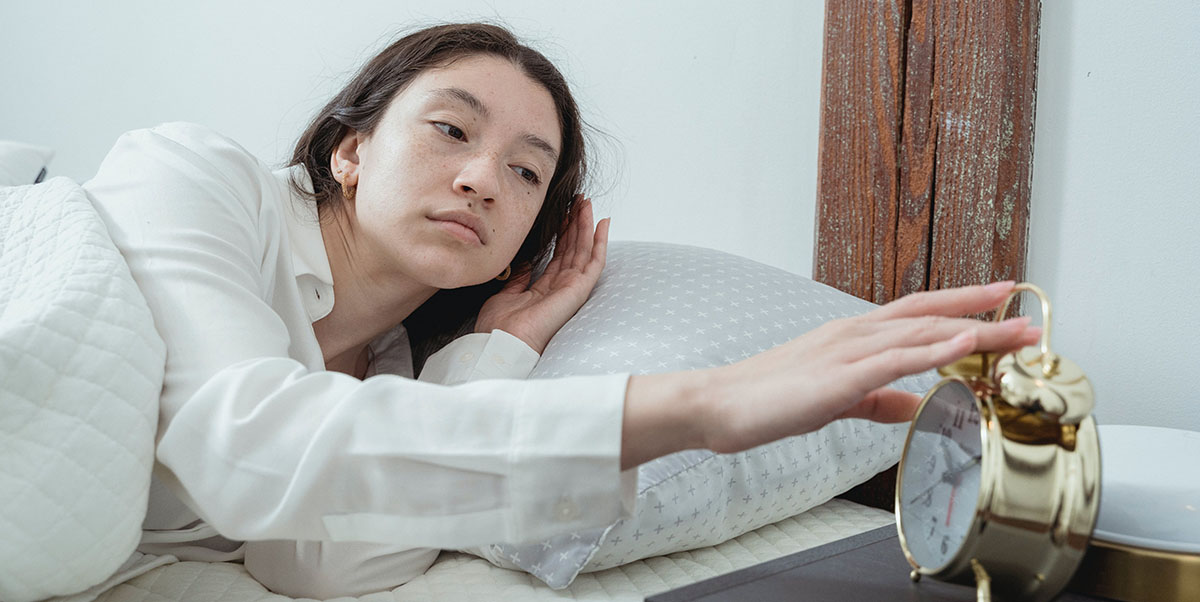Don’t Let “Falling Back” for Daylight Saving Time Fell Your Sleep Routine
By Kristy Warren
As we get ready to turn our clocks back an hour this coming weekend, it's a good time to check in with our sleeping habits. Shifting your schedule by an hour might not sound like much on paper, but whether we're "falling back" or "springing forward," Daylight Saving Time can have a big impact on our health. Learn how to set yourself up for success and minimize disruptions to your sleep routine with tips from our Laurel Health experts.
What Difference Does an Hour Make?
Both “springing forward” and “falling back” affect more than just our sleep. The shift in daylight hours affects everything from our daily activities to our body rhythms, mood, focus, energy, and overall health. This weekend, we "fall back" and turn the clocks back an hour, officially marking the end of Daylight Saving Time. While an extra hour sounds better than losing one, falling back each autumn can still present problems. Some people find they wake up earlier or during the night and can't get back to sleep as they struggle to adjust to their new sleep routine and daylight patterns.

When we lose sleep, it affects our concentration, judgment, mood, and productivity. Lost sleep can increase our risk of getting into a car accident, suffering a heart attack, or worsening an underlying health issue. Studies show that the number of people involved in crashes and cardiac events increases right after the start of Daylight Saving Time when we “spring forward” and lose an hour of sleep.
On the other hand, when we gain sleep it can positively improve our health and our wellness. "Falling back" in autumn can help some people feel more rested initially, but even when we "gain" an hour, we may still struggle with resetting and maintaining enough sleep as we adjust to a new routine.
Does Daylight Saving Time Affect Our Health?
Have you ever wondered why changing the clocks affects our sleep and well-being so much, even though it happens every year? Our bodies are fine-tuned to know what to expect in a 24-hour cycle. If you’ve ever had to rotate your work shifts, pull an all-nighter, or balance an early Monday morning with a late-night weekend, you know even a temporary shift in this routine throws off our body’s expectations in a big way.
When we have an established routine and stick to it, our body learns when it’s time to wake up, eat, get active, focus, and sleep. Our bodies need and expect a certain amount of rest every day. The ideal amount of sleep varies by person based on their age, health, and individual needs. For example, children need more sleep than adults to support their growing bodies, and someone with an illness or chronic condition may require more rest.
When we don't get our requisite amount of sleep, our body keeps track of those missing hours. The difference between how much sleep we get and how much we actually need is often described as our sleep debt or sleep deficit. This deficit can build over time and negatively impact your health. Daylight Saving Time can exacerbate this problem, especially when we lose an hour by springing forward and in the initial weeks of adjusting to a new wake-up time. Even gaining an extra hour when we "fall back" can contribute to disrupted sleep if you are struggling to fall asleep at your new bedtime or find yourself waking up too early, unable to go back to sleep.
Do you find yourself waking up too early or shuffling around in a fog after changing the clocks? The good news is that with a little preparation, you can stop Daylight Saving Time from up-ending your sleep routine. There are several simple steps you can take to help your body adapt faster and more easily so you can get back to feeling energized and ready to take on the day sooner.

How to Combat Sleep Fog
Prepare in advance. You can overcome a sleep deficit or a change in your sleep schedule more quickly by preparing for the change well in advance. If you're currently carrying a sleep debt, make use of the extra hour when falling back to make a dent in your deficit. It can be a struggle to stay awake as long as we're used to when we've been getting too little sleep; go to sleep when you feel tired instead of waiting until the clock matches your "usual bedtime."
When getting ready to spring forward, begin going to bed a little earlier each night in preparation for the lost hour of sleep. Smaller increments of change over a longer period of time will be more successful at genuinely shifting your bedtime than trying to go to bed an hour earlier the night before the clocks change.
Eat well and stay hydrated. When your body is struggling to adjust to a change, having a healthy source of fuel and plenty of water helps it recover and adapt to your new routine faster.
Reset with breakfast. Eat a healthy breakfast shortly after getting up; food helps cue your body that it’s time to start the day and prepares you for activity.
Build in extra time. Even when you’ve prepared, the first few days after the change can be hard. It may take you longer to get ready or to get through your morning to-do-list. Build some extra time into your morning routine to allow yourself ample time to start the day and clear the sleep fog before your commute to school or work.

Let the sunshine in. Sunlight plays a big role in our body’s circadian rhythms—the daily cycle of our physical, behavioral, and mental processes.
Circadian rhythms help regulate our sleep-wake cycle over a 24-hour period—that is, when we should wake up and when we should sleep. Sunlight tells our bodies it’s time to wake up and stay awake. Artificial light from your phone, computer, e-reader, or TV screen late at night can disrupt and confuse this natural rhythm by mimicking sunlight's "stay awake" effect, which in turns disturbs the sleep cycle.
Struggling to wake up? Try cracking your blinds so that the light reaches your bed; the sunrise can help you naturally reset your morning routine.
Take a walk. Healthy activity is a great way to help your body acclimate to your new hours, and a walk in the daylight helps reset your body’s circadian rhythms.
Turn off electronic devices well before bed. Avoid late-night exposure to your phone, TV, tablet, or laptop screen, which can interfere with your body’s sleeping rhythms from artificial light exposure. Instead, do something calming before bed: take a bath, cuddle with a pet or significant other, read a print book / magazine, meditate, or listen to relaxing music.
Make more time for rest. Set yourself up for success by prioritizing a good night's sleep. How much sleep you need depends on your age and individual needs. Most adults function best with 7 - 9 hours of sleep per night. Children typically need more: anywhere from 10 - 13 hours of sleep per night depending on their age, growth, and unique needs.
Having trouble sleeping? Our Laurel Health Center experts can help. Your healthcare provider will work with you to identify the underlying cause(s) disrupting your sleep and help you establish a healthy sleep routine. Make an appointment at the office of your choice at 1-833-LAURELHC (1-833-528-7354) to discuss your concerns today.
